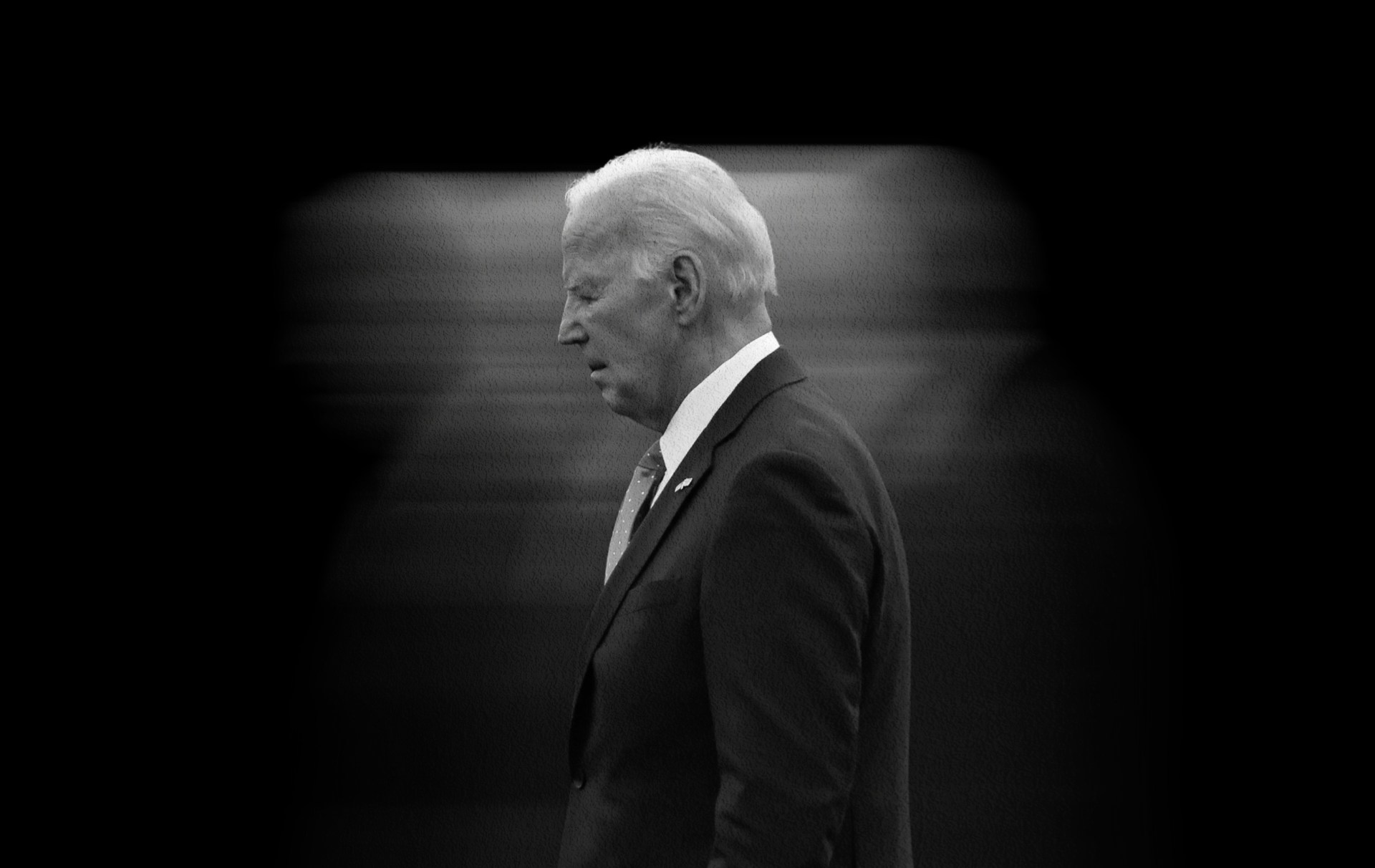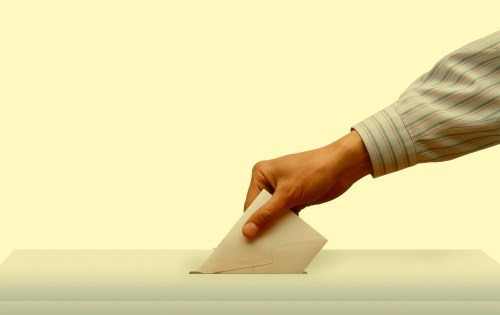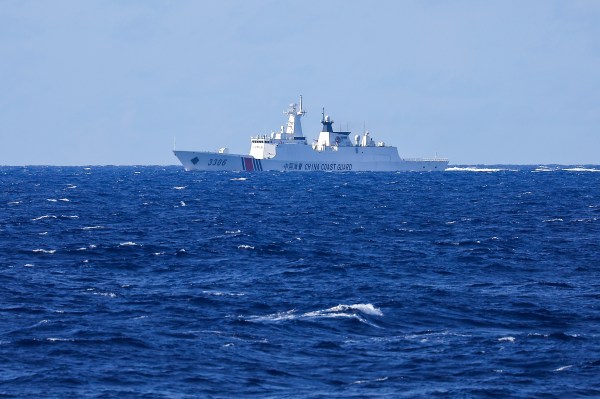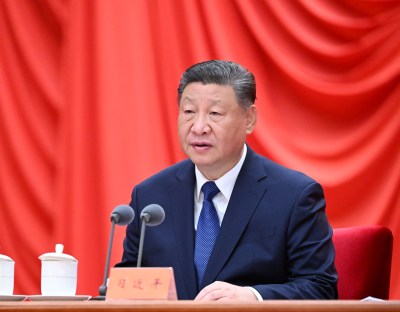You’re reading The Morning Dispatch, our flagship daily newsletter explaining all the news you need to know today in fewer than 10 minutes. To unlock the full version, become a Dispatch member today.
Happy Friday! If you’re near Bozeman, Montana, this weekend and want a drink, try Bozeman Spirits Distillery, which was recently visited by Tim, a black bear, who was presumably looking to stock up ahead of his winter hibernation.
Quick Hits: Today’s Top Stories
- President Donald Trump on Thursday pardoned former Binance CEO Changpeng Zhao, who in November 2023 pleaded guilty to charges related to money laundering and agreed to pay more than $4 billion to the Justice Department, before later serving a four-month sentence. It was the largest such settlement in history, with the Treasury Department stating that “Binance willfully failed to report well over 100,000 suspicious transactions that it processed as a result of its deficient controls, including transactions involving terrorist organizations, ransomware, child sexual exploitation material, frauds, and scams.” Speaking to reporters on Thursday, Trump said, “A lot of people say that he wasn’t guilty of anything,” adding that “a lot of very good people” requested that Zhao be pardoned. As Alex Demas reported for The Dispatch in August, Binance holds $2 billion worth of USD1—a stablecoin from the Trump family’s crypto firm, World Liberty Financial—and those holdings “could already be generating tens of millions of dollars per year in interest for the company and the Trump family.”
- More than 30 people—including Miami Heat guard Terry Rozier, Portland Trail Blazers head coach Chauncey Billups, and former NBA player Damon Jones—were arrested on Thursday on federal charges involving sports betting operations and, separately, illicit poker rings. U.S. Attorney Joseph Nocella Jr. told CNN that “the investigation involves two operations: One centered on the use of insider information to place bets on various NBA games and another revolving around underground poker games,” which were allegedly rigged. FBI Director Kash Patel said the ringleaders “used technology and deceit to scam innocent victims out of millions of dollars,” and the Justice Department listed seven NBA games that were impacted. The second scheme began as early as 2019 and operated in four major U.S. cities—New York City, Las Vegas, Miami, and East Hampton, New York—with much of the proceeds going to “Italian crime families,” according to officials. Patel told Laura Ingraham that this is “just the start” of a “nationwide takedown.” The indictments come just days after the start of the 2025-2026 NBA season.
- During a press conference at the White House on Thursday, Trump told reporters that he would not seek congressional approval for his administration’s strikes on suspected drug-smuggling boats through a declaration of war. “I think we are going to kill people that are bringing drugs into our country, okay?” he said, adding, “They are going to be, like, dead.” Later that day, Trump held a roundtable conference on combating drug cartels—attended by Kash Patel, Defense Secretary Pete Hegseth, Homeland Security Secretary Kristi Noem, Attorney General Pam Bondi, and Director of National Intelligence Tulsi Gabbard, among others—where he said that “the cartels are waging war against America and just like I promised in the campaign, we are waging war against them.” GOP Sen. James Risch of Idaho, chair of the Senate Foreign Relations Committee, said this week that he does not intend to hold hearings on the Venezuela strikes, but a bipartisan Senate resolution, which is expected to be voted upon next week, would prohibit U.S. military operations in Venezuela unless Congress explicitly approves them. Two U.S. B-1 bombers flew near Venezuelan airspace on Thursday.
- British Prime Minister Keir Starmer will host Ukrainian President Volodymyr Zelensky, along with other European leaders, in London today for a meeting in which Zelensky is expected to push European partners to provide Ukraine with more long-range missiles. On Thursday, European Union leaders announced support for Ukraine’s “pressing financial needs,” but delayed a decision on whether to transfer as much as 140 billion euros (about $162 billion) in frozen Russian assets to Ukraine until December. Meanwhile, Russian President Vladimir Putin described the new U.S. sanctions on two major Russian oil companies as an “unfriendly act” that “doesn’t strengthen relations between Russia and the United States,” and Ukrainian authorities opened a war crime investigation after witnesses reported seeing Russian soldiers shoot and kill five Ukrainian civilians on Monday in the country’s eastern Donetsk region. Meanwhile, Ukrainian forensic specialists are working to identify the bodies of more than 1,000 deceased soldiers recently received from Russia. Overnight, Russian bombs struck the Ukrainian regions of Kharkiv and Kherson, killing at least two and injuring 19.
- Before departing Israel from the country’s Ben Gurion airport on Thursday, Vice President J.D. Vance called the Israeli parliament’s passage of two bills to annex all settlements in the West Bank “a very stupid political stunt,” adding, “I personally take some insult to it.” The office of Israeli Prime Minister Benjamin Netanyahu, who voiced his opposition to the bills before the vote, said the legislation was “unlikely” to move forward without his support, claiming that their passage was “a deliberate political provocation by the opposition to sow discord during Vice President J.D. Vance’s visit to Israel.” Meanwhile, far-right Israeli Foreign Minister Bezalel Smotrich said on Thursday that the country should reject any offer it may receive from Saudi Arabia proposing a normalization of relations in exchange for acceptance of a Palestinian state, stating that the Saudis can “keep riding camels in the desert.”
Eastern Promises

Dan Wang writes in his recent book, Breakneck, that China is an “engineering state”—a country bent on leading the world in the technologies that will shape the coming century. And at its helm is Xi Jinping, who studied chemical engineering at Tsinghua University, and has never been more powerful.
This week, the Chinese Communist Party held its fourth plenum, among the most important events on the Chinese political calendar. The fourth plenum in each five-year cycle outlines the country’s next Five-Year Plan—or quinquennial blueprint for economic development—which will be released in full next year. The plan will show whether Xi prioritizes technological independence or the consumer economy—and which version of China emerges by 2030.
But just days before the meetings kicked off, China’s defense ministry announced a major shakeup in the country’s military and Communist Party leadership. He Weidong—a general who was vice chair of China’s Central Military Commission and a member of the powerful Politburo—was ousted along with eight other senior military officials over allegations of corruption.
Corruption is endemic in China’s government and its military, but these purges usually have more to do with factional politics than serious accusations. “There is a culture inside the Communist Party to purify itself,” Miles Yu, the director of the China Center at the Hudson Institute, told TMD. This custom stems from the widespread belief in the Party’s infallibility and the pure goals, but Xi is particularly keen on this method. “He has purged more military senior leaders than anybody since the founding of the Chinese Communist Party more than 100 years ago,” Yu said.
You are receiving the free, truncated version of The Morning Dispatch. To read the full newsletter—and unlock all of our stories, podcasts, and community benefits—join The Dispatch as a paying member.
According to Rana Mitter, a historian of modern China and the S.T. Lee Chair in U.S.-Asia Relations at Harvard University’s Kennedy School, the military purge might also bring one of the more independent parts of China’s governing apparatus to heel. “[Xi] has done a pretty successful job of making sure that the governmental structures are essentially there to do his bidding,” Mitter told TMD. “[But] there is a sense that the PLA and the structures there may not have been as completely under control as the civilian elements.”
In China’s one-party state, the government and the Party apparatus are essentially parallel structures—but the Party has always been the senior partner, charged with supervising the state’s ideological direction. Under Xi’s immediate predecessors, Jiang Zemin and Hu Jintao, factions called “cliques” held more power, and the state was at least nominally distinct from the Party. “What Xi Jinping has done over the last 12 years is to make that distinction almost meaningless,” Mitter said. “Essentially, to put party domination directly and fairly explicitly above any state structures.”
Multiple fired officers were members of the “Fujian clique,” which had previously been among Xi’s most powerful backers. But Xi clearly no longer needs their support.
As China develops from a middle-income to a high-income country—which means rising above a Gross National Income of $14,000 per person, a goal expected to be achieved within the next few years—the Party is confronting a trade-off between encouraging top-down technological development and fostering a robust consumer economy.
“We’re going to see China double down on depending on technology to help drive growth,” Scott Kennedy, the trustee chair in Chinese Business and Economics at the Center for Strategic and International Studies, told TMD. The official communique from the plenum, published by the state-run Xinhua News Agency on Thursday, stressed the development of “new productive forces,” as in high technology, for the next five years.
China has already constructed much of its national economic strategy around high-tech manufacturing. It’s the world’s largest producer of solar panels and electric cars, and earlier this year, Chinese planners announced a list of new technologies for future development, including hydrogen energy, robotics, and quantum computing.
“Chinese leadership believes that its economic and security future depends on tech,” Kennedy said. Recent efforts by the U.S. to block China’s rise in frontier technologies—most notably, bans on advanced semiconductor chips used in AI development—have only strengthened the CCP leadership’s conviction that China needs greater economic self-reliance.
“I think they have now realized that the U.S. is determined to slow China’s growth,” Tianlei Huang, a research fellow and China Program coordinator at the Peterson Institute for International Economics, told TMD. “That’s why they have to be self-sufficient, not just in terms of technology, actually, but also in terms of energy and food.” China’s support for Russia in Ukraine, he argued, is at least partly due to its desire to maintain access to Russian energy and food exports, as an alternative to the U.S., which remains a major exporter of food, such as pork, to China.
The impulse toward self-sufficiency has deep roots. Ever since the Communist Party’s victory in the Chinese Civil War in 1949, China’s leaders have been doggedly focused on avoiding another “century of humiliation,” the term used to describe the country’s domination by Europe and America from 1839 to 1945. The self-strengthening movement, an effort during the late-19th century to modernize China’s military and government, was a famous failure, not least because the Chinese Empire was reliant on imports of modern Western weaponry, which could be cut off at will. Xi refuses to risk the same dependency with batteries and semiconductors.
But the drive to self-reliance has trade-offs. China is an increasingly wealthy nation, but one plagued by entrenched poverty and deep inequality. In 2021, roughly 17 percent of the population was still living below the World Bank’s poverty line of $6.85 a day. Rural poverty is still common, and Huang noted that more than 300 million Chinese citizens are migrant laborers, often shut out from place-based health care and employment benefits.
Every dollar spent on manufacturing, then, is a dollar not spent on fortifying the country’s still-meager social security system, adapting health care to the needs of a rapidly aging population, or providing child care support. Many economists have highlighted the need for China to continue developing its consumer market by increasing disposable income; expanded social programs are one way to do so.
But China’s leaders are not completely prioritizing technological development over all other concerns. Huang pointed out that Chinese productivity growth—a key driver of economic growth and overall wealth—has stalled in recent years. Encouraging the development of new industries and technological firms, such as the AI company DeepSeek, should eventually diffuse benefits throughout the economy. And the state has made some efforts to increase household incomes. Starting this year, families will receive a child benefit of around $500 per child under 3, as the Party seeks to reverse the stark demographic challenges created by the one-child policy.
Even so, the CCP will focus its coming Five-Year plan primarily on manufacturing and self-sufficiency, and the average Chinese citizen will likely continue facing similar challenges over the next half-decade. Fángnú, roughly translated as “mortgage slave,” describes a person who spends more than half his or her income on a home loan. This represents a growing percentage of China’s population, and the country’s housing market, which cratered in the early 2020s and continues to slump, will only compound the problem. The weak social safety net also means Chinese citizens tend to save more than in other developed countries. Xi’s personal views, including a dislike of “welfarism,” might also limit the prospects for reform in these areas.
And even though the CCP is willing to prioritize technological advances over bread-and-butter concerns, that doesn’t mean China is destined to become a high-tech superpower. Vibrant private-sector pockets, producing successful companies like DeepSeek and BYD, sit alongside a massive, underperforming swath of state-owned enterprises that account for around a third of the country’s GDP. “There’s no guarantee that their investment in those new technologies will really deliver higher TFP (productivity) growth,” Huang said.
But Xi, fully in command of the Party and the country, plans to move forward in the face of a “complicated international landscape.” Translated from dry Party-speak, that means China is preparing for mounting challenges. Like any good engineer, Xi is tinkering with both the Party and the economy to confront that challenge.
Today’s Must-Read
After Joe Biden contracted COVID-19 in July 2024, he and members of his inner circle retreated to his home in Rehoboth Beach to make a final determination about how to proceed with his imploding presidential campaign. In this exclusive excerpt from his new book, Retribution, Jonathan Karl of ABC News reports on those fateful final days: high-ranking Democratic leaders threatening to go public with their opposition to Biden’s candidacy, a refusal to take calls from former President Barack Obama, Vice President Kamala Harris’ calculated silence as she waited for her running mate’s decision. “You’re still the motherf—ing president of the United States,” Biden’s son Hunter said he told his father. “You’re still the leader of this party. Not President Obama, not Speaker Pelosi, not Hakeem Jeffries, not Chuck Schumer, and certainly not the pundit class. You’re the one that gets to make this decision.’”
Toeing the Company Line
America’s First Globalist
Alfred Thayer Mahan and the rise of an outward-looking United States.
The Shutdown Matters, but Probably Not for the Reasons You Think
Behind the political theater lies a fundamentally broken Washington.
Washington Seizes the Means of (Energy) Production
The good, the bad, and the ugly of state ownership in energy companies.
Is There a Future for Pragmatism in the Democratic Party?
Moderate liberals can win, but they lack the energy and confidence of the left wing.
Independents’ Day
Unaffiliated voters hold enormous power in midterm elections. Right now, they are unhappy with both Trump and Democrats.
In Other News
Today in America:
- The Senate on Thursday failed to pass three separate bills to pay federal workers. One was supported by the GOP; the other two were supported by Democrats.
- Treasury Secretary Scott Bessent and Trade Representative Jamieson Greer will meet Chinese officials in Malaysia today for trade talks.
- In separate Thursday announcements, Trump and San Francisco’s Democratic Mayor Daniel Lurie said that the federal government would not deploy the National Guard to the California city for the time being.
- Apple, Amazon, Google, Meta, and several other major companies are helping fund the White House’s $300 million ballroom extension.
- Trump announced he will be cutting off trade negotiations with Canada, citing an ad released by the province of Ontario that used audio from a 1987 radio address in which then-President Ronald Reagan criticized tariffs.
Around the World:
- Two Russian Su-30 fighter jets entered Lithuanian airspace on Thursday evening. Lithuania is a NATO member.
- Ahead of this Sunday’s midterm elections, Argentine President Javier Milei on Thursday appointed Finance Minister Pablo Quirno to head up the country’s Foreign Ministry. Quirno’s predecessor, Gerardo Werthein, resigned on Wednesday.
- British authorities arrested three men in London on charges of working with Russia’s foreign intelligence service.
- At least 40 migrants, including infants, died on Wednesday when their ship, en route to Europe, sank off the coast of Tunisia.
- King Charles III joined Pope Leo XIV for a service on Thursday in the Sistine Chapel, marking the first time a reigning British monarch had prayed with a pope since the 16th century.
- A Belfast court acquitted a former British soldier of murder in the 1972 “Bloody Sunday” massacre of 13 unarmed Catholics. He was the first soldier tried for the shooting, but the judge determined the evidence fell short of the burden of proof.
On the Money:
- Oracle and OpenAI announced plans to build a $15 billion data center in Port Washington, Wisconsin.
- Investors in the meme coin for first lady Melania Trump, $MELANIA, sued the coin’s creators for allegedly operating a pump-and-dump scheme. The first lady was not named in the suit.
- Under its Digital Services Act, the European Commission charged Meta this morning with improperly and insufficiently handling illegal content on Facebook and Instagram.
- The Massachusetts-based startup, Phoenix Tailings, opened a new rare-earth metal processing facility in New Hampshire.
- Oil prices surged on Thursday following U.S. sanctions on two Russian oil companies, with Brent crude rising 5.5 percent.
Worth Your Time:
- “A Mystery in Trinidad as Bodies Wash Ashore After U.S. Strikes” (New York Times)
- A new search engine can find real, human-made works of art based on broad descriptions. (Semantic.art)
- Nate Silver on the risks and upsides of political outsider candidates. (Silver Bulletin)
- Nicholas Thompson reflects on running and his father. (The Atlantic)
- “Female spies are waging ‘sex warfare’ to steal Silicon Valley secrets” (The Times)
- Willa Glickman’s feature on the life of NYC mayoral candidate Curtis Sliwa. (New York Review of Books)
- Savannah Walsh writes about presentation coaches who are hired by reality television actors to boost their popularity. (Vanity Fair)
- Ben Brubaker examines how algorithms could collude to drive up prices. (Quanta Magazine)
- Out today: A House of Dynamite on Netflix, Springsteen: Deliver Me from Nowhere in cinemas, Dispatch on Steam and PlayStation, and new albums from Demi Lovato and Dave everywhere good music is found.
Presented Without Comment
Matt Levine on Elon Musk (Bloomberg):
Somehow a true sentence that I am writing in 2025 is “the world’s richest man demanded that people give him a trillion dollars so that he can have absolute control of the robot army he is building unless he goes insane.”
Also Presented Without Comment
New York Times: German Company Launches Ad After Its Lift Is Used in Louvre Heist
Also Also Presented Without Comment
404 Media: Breathing Through Our Butts Declared Safe After First Human Trial
Behind the Scenes
Today’s “Behind The Scenes” in response to commenters who asked why we didn’t cover the “No Kings” rally in TMD this week. As commenter Very Old Grumpy Guy wrote:
No mention of the No King’s rally? Based on postings on Friday, more than a few TD readers were planning on attending. Curious of the reason of the omission?
TMD Editor Ross Anderson: In retrospect, we should have included a bullet point on the rallies in Monday’s “In Other News” section. Convincing 5 to 7 million Americans to agree to do anything is no small feat.
That said, I don’t think the protests merited much more coverage than that in TMD. That’s not to say they’re not important—or that coverage of them wouldn’t make sense in a local outlet, or as part of a magazine feature, or even elsewhere at The Dispatch! My colleague Mike Warren had a great piece on the rallies and the GOP’s reaction to them on the site last week, and Nick Catoggio provided some excellent analysis of the movement in a recent Boiling Frogs. But in my view, protests—in a democratic country—are not inherently TMD stories in and of themselves.
We’ve covered protest movements in TMD in the past—in Iran, in France, in Minneapolis—but in each instance, there was more to the story than the rallies (or riots) themselves. In Iran, the (incredibly rare) protests posed a serious threat to the stability of the regime. In France, they were part of a broader story about efforts to reform entitlements and put the country on sounder fiscal footing. In Minneapolis, protesters set off a conversation about race that altered the trajectory of the country—in good ways and bad—and rioters caused hundreds of millions of dollars in damages.
The “No Kings” protests, in contrast, were (thankfully) nonviolent, and represented disapproval of the Trump administration’s actions in general, primarily among people who have disapproved of him for years (there hasn’t been any major swing in Trump’s approval rating recently). We’ve covered—and will continue to cover—the various actions protesters were objecting to, and if the movement develops further and we start to see candidates running for office labeling themselves “No Kings Democrats” or “No Kings Independents” like we did “Tea Party Republicans” 15 years ago, you’ll read about it here.
To read TMD editor Ross Anderson’s response to the question—or to submit one of your own—become a member today.
Let Us Know
Have any thoughts or questions about today’s newsletter? Drop us a note in the comments or by emailing us at tmd.questions@thedispatch.com. We read every submission, and your message could be featured in an upcoming “Behind the Scenes” segment.
Have any thoughts or questions about today’s newsletter? Become a member to unlock commenting privileges and access to a members-only email address. We read every submission, and answer questions in the following edition of TMD.
















Please note that we at The Dispatch hold ourselves, our work, and our commenters to a higher standard than other places on the internet. We welcome comments that foster genuine debate or discussion—including comments critical of us or our work—but responses that include ad hominem attacks on fellow Dispatch members or are intended to stoke fear and anger may be moderated.
With your membership, you only have the ability to comment on The Morning Dispatch articles. Consider upgrading to join the conversation everywhere.